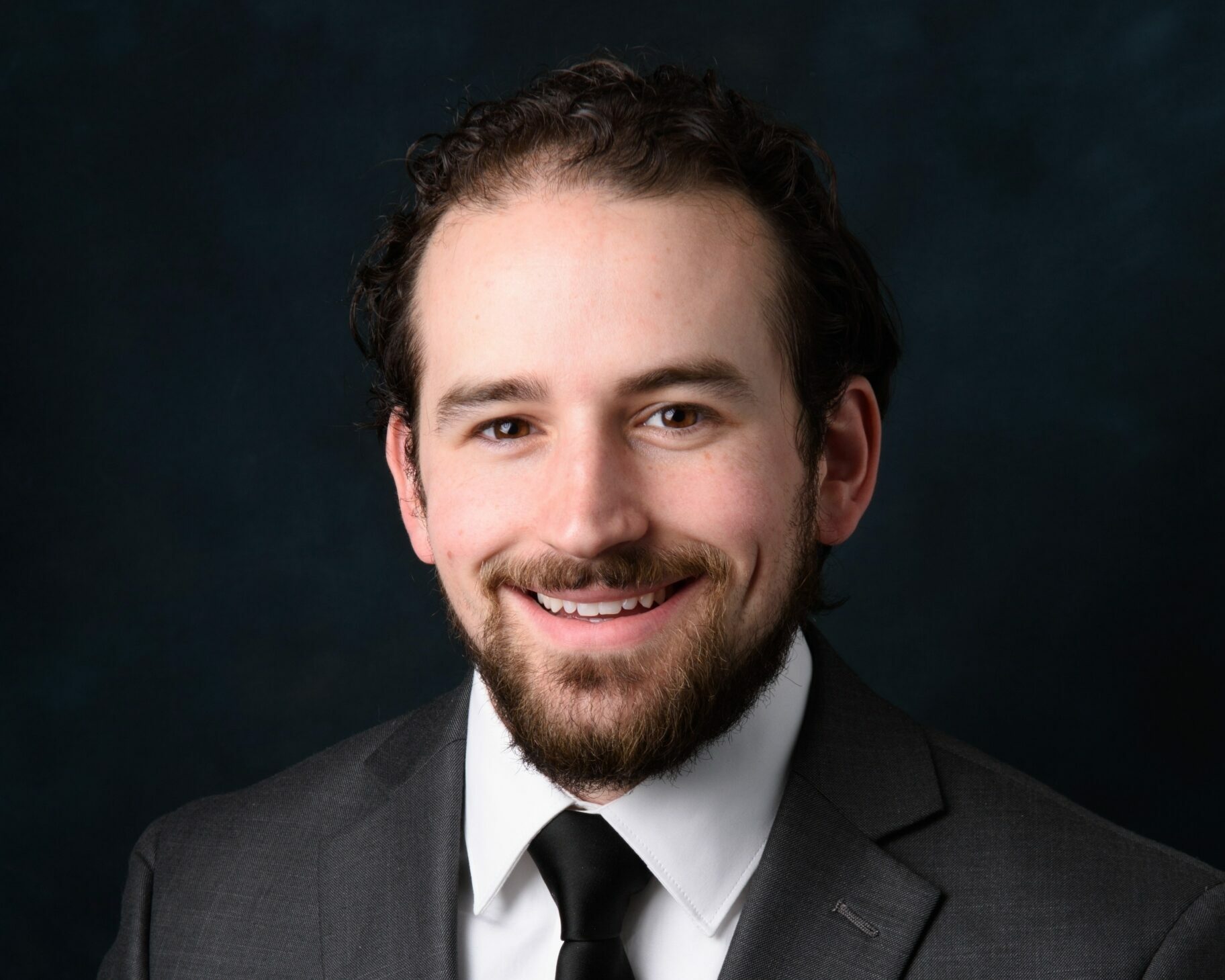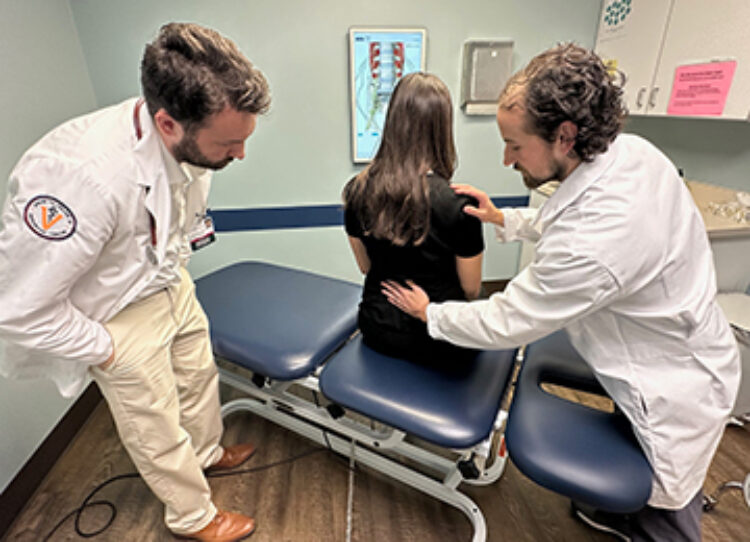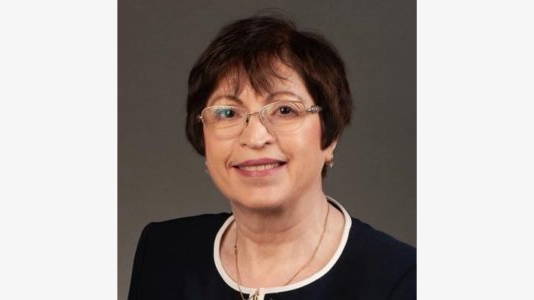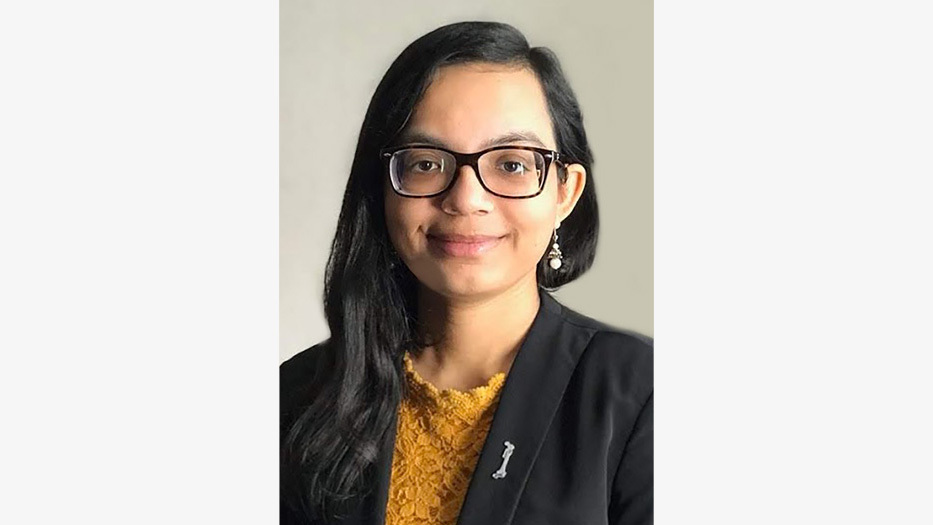
Dr. Smith: There’s a quote from Gandhi that says: “A sign of a good leader is not how many followers you have, but how many leaders you create.”
That’s why I went into academic medicine right after graduation.
There is a limit to the impact I can make on patients as an individual, but if I can teach learners Osteopathic principles - if I can teach them how to provide the best, patient-centered, most affordable, and effective care - then they go and do it.
And they teach others, who teach others, and the amount of impact we have together can be endless.
AOF: That’s the legacy at the heart of the American Osteopathic Foundation’s mission - supporting new leaders, and celebrating the leaders already at work in Osteopathic medicine, like you.
Can you tell us a bit about how you got started in the profession?
Dr. Smith: Well - initially, I thought I’d go into business; I love stocks and financials.
But I also like a challenge. I like being pushed to be better. And I started to find a real fascination with medicine.
I became an EMT for a while, to make sure I could handle working in medicine. I loved that job, but it had limitations around what I could do within the scope of my practice.
AOF: Of all the different directions you could have gone after being an EMT, you wound up as an Associate Program Director at the Ascension Macomb-Oakland Hospital Family Medicine Residency program. What drew you to Osteopathic medicine specifically?

Dr. Smith: I wanted to find ways to respond to the problems my patients were facing beyond just prescribing medications and making referrals. Sometimes, the right treatment involves NOT putting a patient on medication, or even withdrawing some medications they’ve been prescribed. The Osteopathic profession provides alternate solutions when prescribing and referring aren’t an option.
Osteopathic physicians I had seen were using more hands-on techniques and asking more detailed questions. They were really investigating the whole person.
That resonated with me. I knew I wouldn’t be limited. I’m passionate about making a difference for patients. I love being able to sit with a patient and work together to find ways to improve their health, working with whatever physical ailments they have, sure, but also giving them more paths to healing than just medication.
AOF: You’re based in Warren, MI, just outside of Detroit, which is where we first connected.
Dr. Smith: I first encountered the American Osteopathic Foundation when I was a 3rd year medical student. There was an opportunity to participate in the Human Touch Leadership Project, which mobilized volunteers into different areas of need within the community. Fortunately for me, the project was scheduled to take place right here in my own backyard in Detroit - the place I grew up and have lived my whole life.
I couldn’t wait to be part of it. Fortunately, I was accepted into the program, and it was a wonderful journey to be hands-on in the community doing volunteer work, cleaning up the streets, talking with patients and people one-on-one, and meeting with community leaders to discuss what we could do to inspire change. It made a powerful difference to my perspective and my understanding.
So much good came from that project. A lot of new ideas, inspiration, and leadership endeavors. The AOF really invested in our community, and there was such a high yield of return on that investment, for me and for many others.
AOF: That’s exactly what we hope to do - create valuable connections in both the profession and the community. Has your work as an Osteopathic physician and educator changed your views on healthcare in any way?
Dr. Smith: I think all of us are familiar with a lot of the barriers that exist in healthcare from our own personal experience, whether we’ve struggled with insurance and payments, or billing or inattentive care - all the things that get in the way of our access to wellness.
But becoming an actual physician revealed a whole set of challenges that patients never really see. There are a lot of things behind the scenes that have to be in place to provide adequate care. For many of us, what we want to do is simple - provide the best care for our patients. But the system can make that challenging.
Most Osteopathic physicians I know aren’t okay with just letting the status quo continue if it isn’t the best way to take care of our patients.
We know there are better opportunities. We have to be advocates to reduce the barriers, to help patients get the care they deserve. So we continue to fight. And that’s why I’m so proud to be part of this family. Everyone, from students to life-long physicians, is on the same page when it comes to the desire to take the best possible care of our patients.
AOF: Do you think patients notice a difference once they experience Osteopathic medical care?
Dr. Smith: I believe patients recognize when someone really cares about them. When they're not just another number walking through the door. We see patients as part of our family, and we take time to build and value those relationships.
I think Osteopathic physicians rely on those connections, because they’re essential to figuring out the right therapies, treatments, and the capacity of your patient to use them. If you don’t have a connection with your patient, they’re much less likely to follow through on what you recommend, and they’re less open to sharing their concerns with you.
The Detroit community suffers from a lot of ailments, especially access to health care for the population. We’re a very diverse city - you’ll find very affluent individuals, and also some of the poorest people in the country. Many of the latter don’t have the financial resources, transportation, physical ability, or time off they need to access every kind of care. It’s our job to get to know each patient and figure out what is going to work for them.
Good care means taking the time to really investigate. It means saying: “I would love to put you on this medication, but is it going to be something you can actually afford? Will you be able to pick it up? Will you actually take it?”
Our patients tell us everything, because we’ve built trust with them. We’ve shown them we’ll go the extra mile. We’ll call them with test results even if they come in on a Saturday. We’ll make sure they get the care they need, and that level of commitment frees them up to trust us.
AOF: How would you describe the American Osteopathic Foundation to someone who has never heard of it?
The American Osteopathic Foundation supports, guides, mentors, and connects current and future leaders in the Osteopathic profession. They identify folks with leadership characteristics and help connect them with the support they’ll need along the way.
They help the cycle of creating leaders continue, because those future leaders become present leaders, then mentors to a new generation.
The challenge for Millennial and post-Millennial learners is we’re uniquely concerned when there’s injustice in place. We feel it deeply - it's almost like a moral injury for us. For example, when a patient can't access a medication that we know they need because they lack insurance or another barrier, we genuinely feel for them.
I think the challenge in that deep empathy for all of us is: what are we going to do about it? Most of us would say the broken system needs to be fixed, and we want to fix it immediately. But systemic change is rarely quick. It's easy to get fatigued, or distracted, or discouraged. That’s where the support and encouragement become truly important. It keeps us able and energized to advocate and promote policy change and create better access to care for our patients.
I have so much hope for what the future holds. And I’m deeply grateful, on behalf of all Millennial and post-Millennial learners, for charitable organizations like the American Osteopathic Foundation who invest in us. There are so many inspiring leaders and examples within the AOF. It’s not just about the financial award, although that's obviously appreciated. It's also mentorship. It's taking the time to recognize a medical student or a new resident at a conference, even in small ways, like coming up and saying hi to them. It’s something unique to the Osteopathic medical profession that you don’t really find anywhere else.
In other professions, it’s easy to feel isolated - to be a fly on the wall at a conference, to feel invisible when you’re just starting out. But when I go to Osteopathic medicine events, people gravitate towards each other. People want to talk to you, hear your story, and help encourage you.
Those types of gestures model the same kind of care that we want future leaders to extend to their patients - care that makes them feel seen and valued. Like they’re an essential part of something.
Like they’re part of the family – the Osteopathic medical family.
Our generous partners help us make sure new and aspiring Osteopathic students have access to the support and friendship of the Osteopathic medical family. We believe in the connections that keep our profession strong and celebrate DOs like Dr. Smith, who are actively elevating and guiding the next generation of Osteopathic physicians.
To nominate an Osteopathic leader for an award, or to apply for a scholarship or grant, visit our Grants, Scholarships, and Awards page. To volunteer, please contact Terry Sanders. To make a gift to the American Osteopathic Foundation, please visit our Online Giving page.
Together, we can continue to elevate Osteopathic medicine and the dedicated DOs who provide it.


